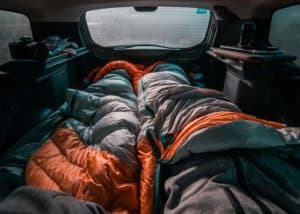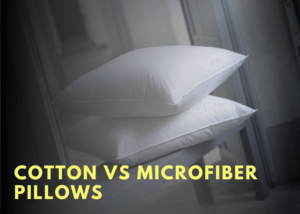Are you a caffeine addict and love a cup of coffee just about any time of the day? Is caffeine messing with your sleep leaving you feeling exhausted the following day?
Many of you enjoy a cup of coffee and the caffeine boost it provides. However, caffeine is also found in tea and other drinks, so giving up coffee is not always the best solution. Exercise a few hours before bedtime, a warm bath, and a good book may help you drift off to sleep.
Caffeine is a stimulant that can interfere with your sleep. If you have had caffeine and are having trouble sleeping, here are a few things you can try:
- Avoid caffeine close to bedtime: Try to avoid consuming caffeine in the hours leading up to bedtime, as it can take several hours for the effects of caffeine to wear off.
- Create a relaxing bedtime routine: Establishing a relaxing bedtime routine can help you wind down and prepare for sleep. This might include activities such as reading, taking a warm bath, or practicing relaxation techniques like deep breathing or progressive muscle relaxation.
- Try a sleep aid: If you are still having trouble sleeping after trying the above steps, you may want to consider trying a sleep aid, such as melatonin. This hormone is naturally produced by the body and helps regulate sleep-wake cycles.
- Consult with a healthcare professional: If you are still having trouble sleeping after trying the above steps, it may be a good idea to speak with a healthcare professional. They can help identify any underlying issues that may be causing your sleep problems and provide guidance on how to address them.
Is it better to drink coffee in the morning or at night?

Always drink coffee in the morning. Coffee contains caffeine which is a stimulant. Caffeine is OK in small doses, but drinking coffee throughout the day and into the evening will result in a poor night’s sleep.
Caffeine has many side effects from insomnia, anxiety, frequent urination, poor performance at work, irritability, to name a few.
However, insomnia is prevalent among coffee drinkers, and the question is how to sleep after drinking coffee.
A good practice to get into is to limit your coffee intake and have your last cup around lunchtime or even afternoon break.
Light exercise early in the evening like a long walk, not so brisk that you break out into a sweat but just enough to elevate your heart rate.
Following a relaxing evening, a warm batch and a dark bedroom should do the trick.
But learning how to sleep after drinking coffee can be a challenge. Your mind does not switch off, so you lie in bed and then pick your phone up and search social media. We have all been in this situation.
But learning how to sleep after drinking coffee is not a science but an individual response to the caffeine in your system.
Is it possible to fall asleep after drinking caffeine?
It depends on how much caffeine you have consumed, a cup of coffee early in the evening may keep you awake longer than you like, but you will be able to sleep.
But how to sleep after Red Bull can be a whole different story. Red Bull is high in caffeine and sugar, and both stimulants will keep you awake for a long time.
You can combat the effects by doing light exercise and watching something calming on TV. Take a warm bath and relax in your favorite aromatherapy oils.
A cool room always helps you get to sleep. There is nothing quite like snuggling under the duvet to keep warm. Make sure the room is very dark.
Remove smartphones and computers, and even the charging LEDs is enough to prevent you from sleeping.
Sleeping is a habit; try to be in bed simultaneously every night for the best sleep.
How to stop drinking caffeine before bedtime?
Know your body, and caffeine affects us all differently as our sensitivities are not the same as caffeine.
After the initial jolt of caffeine, the stimulant can stay in your bloodstream for up to eight hours, so if you plan to sleep at 10 pm, make your last coffee no later than 3 pm.
Exercise is a great way to preoccupy your mind and break the cycle of drinking coffee in the evening. It’s important not to swap one stimulant like coffee for another like alcohol.
You will need to learn the techniques of how to sleep after you’ve had caffeine, but it’s an easy process, and after a few days, you can notice the benefits.
You will need to go through a process of relaxing your mind together with some physiological changes.
Make yourself tired, walk, jog, or even swim, but not vigorously. Vigorous exercise can prevent sleep.
When it approaches bedtime, get into a routine of having a warm bath or a long warm shower, use aromatherapy oils. They are said to be extremely good for inducing sleep.
If you are in the bath, dim the lights and light a candle; imagine you are on your favorite beach with your favorite person.
Make sure the bedroom is cool. Sleeping in a warm room is challenging unless you are used to that type of climate.
Remove all electronics from the bedroom, even switch off standby lights; they emit bright light preventing you from sleeping.
If you need a little assistance, read a book. Nothing violent or scary will get the imagination racing, just something sedate.
Finding a way to sleep after caffeine is a process. You may have been addicted to drinking caffeine and never knew.
Does coffee prevent sleep?
Yes, but like anything else, if taken in moderation, coffee is said to have some great health benefits.
Drinking coffee can become a habit that then develops into an addiction. What once was an innocent couple of cups of coffee in the morning turns into a cup every hour and more and more into drinking espresso shots of coffee, emulating our Italian brothers.
Once you start on the coffee espresso shots, the volume of liquid is not there that satisfies you, and you drink more.
Too much coffee not only prevents you from sleeping, but it can also have an impact on your life.
Because coffee and caffeine prevent you from sleeping when you should be alert, you are sluggish and have brain fog due to lack of quality sleep.
You find it hard to react to situations rationally. What once was easy now takes concentration.
Caffeine causes your heart to race and increases your blood pressure. Continued elevated blood pressure affects your organs, mainly your heart and kidneys but don’t rule out the risk of stroke.
These are just a few reasons why coffee is a potent stimulant and keeps you awake.
How can you sleep after drinking caffeine? Cut back on the caffeine and give yourself eight hours clear of drinking coffee before you wish to sleep.
You can make the changes with a bit of perseverance and tenacity.





